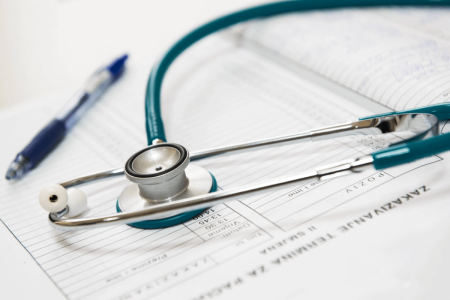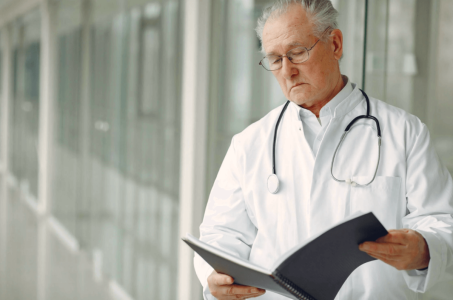GP fees are now higher than rebates, leading to urgent calls for Medicare reform
- Replies 32
I think we can all agree when I say health care should be easily accessible, affordable, and available to all Australians. Unfortunately, with the current out-of-pocket expenses we are currently facing, we aren’t seeing an easily accessible healthcare system, with some Australians having to avoid going to the doctor because they simply cannot afford it.
Although Prime Minister, Anthony Albanese, has told us he'll have a plan or a solution to the problem by the end of the year (which we can all appreciate), the pressure is still on to make changes to the current system right now.
What many of us don't realise is that our most trusted and respected healthcare providers – General Practitioners – are the ones who, in many ways, bear the brunt of the burden.
Recent reports revealed that the way in which General Practitioners are being compensated for their services is perhaps a little outdated and unfair.

Data showed that for the first time ever, GP fees were higher than what the Medicare rebate was for a standard 20-minute consultation – which is $41 and $39.26, respectively – leading to Dr Nicole Higgins from the Royal Australian College of General Practitioners calling for an urgent fix.
'What we need is an urgent increase in the rebate. The money the patient gets back from the government when they see a GP hasn't kept up with the cost of providing that service,' she said.
Another issue directly related to this is the fact that bulk billing rates are at an all-time low.
Dr Danielle McMullen from the Australian Medical Association told a news platform that the official 83 per cent figure was likely only a quarter of the true number of people who are struggling to find a GP service that's affordable for them.
'We do think that those numbers around 83 per cent are picking and choosing the figures bit. We do hear from patients that it's more difficult than that,' she added.

While these are crucial issues that all require immediate attention, Prime Minister Anthony Albanese says that the government's plan is to open 50 new urgent care clinics around the nation by July, to hopefully ease the burden on the health system.
Where these clinics will be located and if the timeline is on track is something the PM remains tight-lipped about.
This news comes after the premiers of New South Wales and Victoria, Dominic Perrottet and Daniel Andrews, have urged the Albanese government to substantially increase funding for Medicare.
A few weeks ago, the two leaders jointly initiated a campaign for the national cabinet meeting to address primary care with a sense of urgency, advocating for pay increases for GPs, an expansion of university places to train more doctors, and improved coordination with hospitals.
Perrottet told the press that he aspired to see an increase in bulk-billing rates to alleviate pressure on hospitals.

Members, if you ever find yourself in an urgent situation, please do not hesitate to contact emergency services on 000 rather than going to a GP.
With respect to regular check-ups or other medical advice, we strongly recommend that you take the time to see a GP if you can afford it. Do your research beforehand to find one that is suitable for your needs and, most importantly, affordable.
What are your thoughts on this? Share them with us in the comments below!
Although Prime Minister, Anthony Albanese, has told us he'll have a plan or a solution to the problem by the end of the year (which we can all appreciate), the pressure is still on to make changes to the current system right now.
What many of us don't realise is that our most trusted and respected healthcare providers – General Practitioners – are the ones who, in many ways, bear the brunt of the burden.
Recent reports revealed that the way in which General Practitioners are being compensated for their services is perhaps a little outdated and unfair.

For the first time in history, the average fee for seeing a general practitioner is now higher than the government rebate for Medicare. Credit: Pexels/Pixabay.
Data showed that for the first time ever, GP fees were higher than what the Medicare rebate was for a standard 20-minute consultation – which is $41 and $39.26, respectively – leading to Dr Nicole Higgins from the Royal Australian College of General Practitioners calling for an urgent fix.
'What we need is an urgent increase in the rebate. The money the patient gets back from the government when they see a GP hasn't kept up with the cost of providing that service,' she said.
Another issue directly related to this is the fact that bulk billing rates are at an all-time low.
Dr Danielle McMullen from the Australian Medical Association told a news platform that the official 83 per cent figure was likely only a quarter of the true number of people who are struggling to find a GP service that's affordable for them.
'We do think that those numbers around 83 per cent are picking and choosing the figures bit. We do hear from patients that it's more difficult than that,' she added.

Doctors' groups say that federal payments haven't kept up with rising costs, so more and more general practitioners can't afford to offer bulk billing. Credit: Pexels/Gustavo Fring.
While these are crucial issues that all require immediate attention, Prime Minister Anthony Albanese says that the government's plan is to open 50 new urgent care clinics around the nation by July, to hopefully ease the burden on the health system.
Where these clinics will be located and if the timeline is on track is something the PM remains tight-lipped about.
This news comes after the premiers of New South Wales and Victoria, Dominic Perrottet and Daniel Andrews, have urged the Albanese government to substantially increase funding for Medicare.
A few weeks ago, the two leaders jointly initiated a campaign for the national cabinet meeting to address primary care with a sense of urgency, advocating for pay increases for GPs, an expansion of university places to train more doctors, and improved coordination with hospitals.
Perrottet told the press that he aspired to see an increase in bulk-billing rates to alleviate pressure on hospitals.
Key Takeaways
- The latest data shows that the bulk billing rate for GPs reached a low of 83 per cent last year in Australia.
- The average fee for a 20-minute consultation has exceeded the Medicare rebate for the first time in history.
- The Royal Australian College of General Practitioners and the Australian Medical Association are both calling for an increase in the rebate.
- Prime Minister Anthony Albanese has announced plans to open urgent care clinics to help relieve pressure on the health system. However, the locations of these clinics are yet to be confirmed.
With respect to regular check-ups or other medical advice, we strongly recommend that you take the time to see a GP if you can afford it. Do your research beforehand to find one that is suitable for your needs and, most importantly, affordable.
What are your thoughts on this? Share them with us in the comments below!







